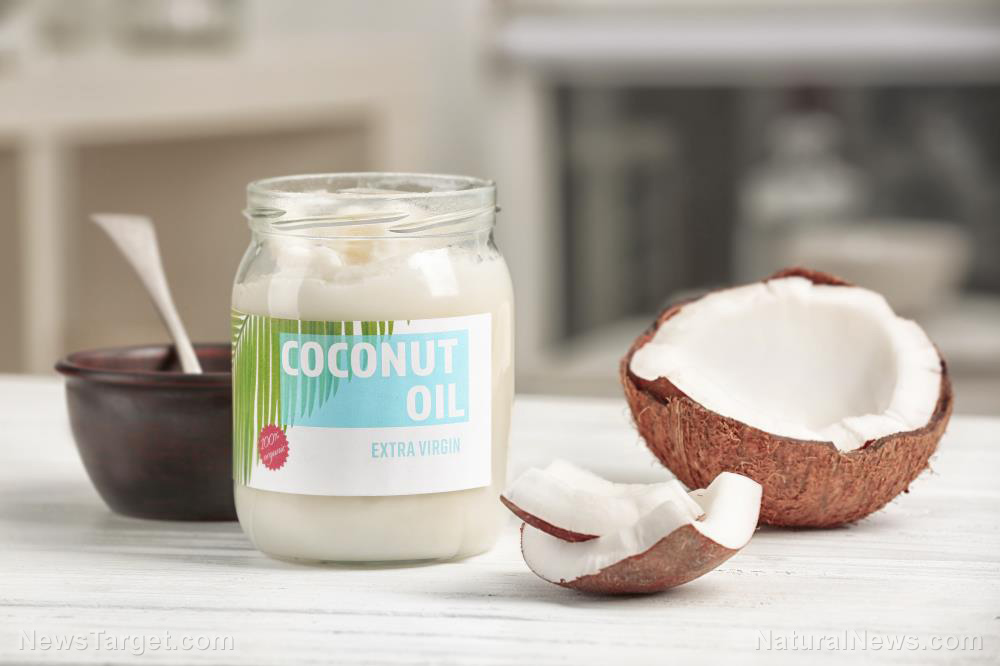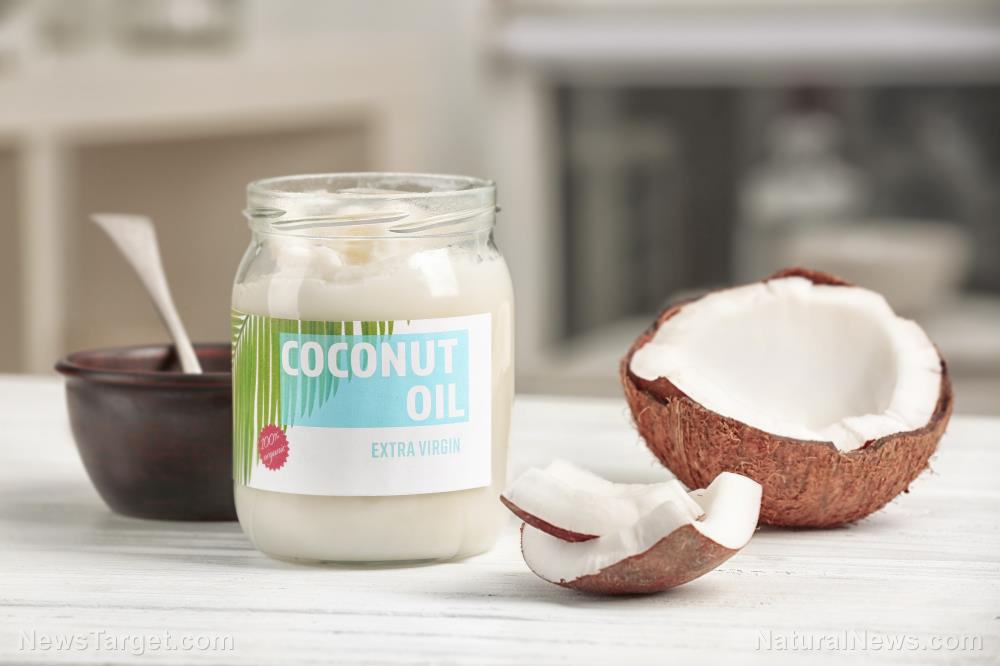Learn about brain health and nootropics to boost brain function
The neuroprotective benefits of coconut oil


(Natural News) It’s no surprise that in some regions of the world, coconuts are called the “tree of life.” It’s not just because no part of the tree goes unwasted, it’s also due to its multiple health benefits.
Recent studies, in particular, have shown that the use of coconuts — especially coconut oil — is linked to a reduced risk of chronic diseases like cancer, heart disease, and diabetes. Despite these benefits, not much is known on the brain-boosting effects of coconuts, especially when it comes to conditions like Alzheimer’s disease and dementia.
Coconut oil provides the brain with a unique boost of energy
Coconut oil is one of the best sources of medium-chain triglycerides (MCTs), which the brain uses as a backup source of energy. Despite the moniker, MCTs are nothing like the triglycerides commonly found in canola oil, as those are long-chain triglycerides that are readily stored as fat. In comparison, the body breaks down MCTs more easily, allowing it to be used in critical processes like brain development.
It also does this without needing insulin, making it ideal for those with Alzheimer’s disease, where the brain becomes unable to process glucose for energy.
In addition, multiple studies in the National Institute of Health’s database have found that:
- MCTs, together with ketone bodies, can protect the brain from neurological diseases, including all forms of dementia, Parkinson’s disease, stroke, and even traumatic brain injury.
- Coconut oil has been found to reduce beta-amyloid plaques that are associated with Alzheimer’s disease.
- MCTs can delay the effects of aging on the brain by providing it with the fuel it needs to repair brain damage.
- Using MCT oil can improve the memory of people with mild cognitive impairment in as little as 90 minutes.
- An MCT found in coconut oil called caprylic acid has shown anti-autism, anti-aging, and anti-Alzheimer’s properties. (Related: Coconut Oil Can Promote Weight Loss by Increasing Metabolism Naturally.)
More reasons to go nuts with coconuts
The health benefits of coconuts go far beyond its brain-boosting properties. Studies have shown that it can also protect the body against harmful pathogens, including Staphylococcus aureus and Candida albicans — two potentially dangerous pathogens.
Mother Nature's micronutrient secret: Organic Broccoli Sprout Capsules now available, delivering 280mg of high-density nutrition, including the extraordinary "sulforaphane" and "glucosinolate" nutrients found only in cruciferous healing foods. Every lot laboratory tested. See availability here.
It’s also been heavily studied for its anti-obesity properties. In a clinical trial, scientists have found that MCTs contribute to increased satiety and reduced appetite. According to researchers, this could contribute to a reduction in body weight with long-term use. Other studies also indicate that MCTs can increase calories burned by as much as five percent a day. In addition, coconut oil can also improve abdominal fat — a dangerous type of fat associated with cardiovascular disease, Type 2 diabetes, colorectal cancer, and even premature death. A study published in ISRN Pharmacology concludes that taking two tablespoons of coconut oil a day can lead to a significant reduction in waist circumference after four weeks of treatment.
Coconut oil also contains saturated fats, which increase the amount of HDL or “good” cholesterol in the body. In a study in the journal Lipids, researchers from Brazil found that coconut oil reduced total and LDL cholesterol levels, while increasing HDL cholesterol.
To make the most out of coconut oil, it’s best to use it as an alternative to unhealthy canola oil, especially for cooking. It can also be a healthy alternative to butter or even margarine, and even be used to bake, fry, or roast dishes.
Sources include:
Click here to view full article